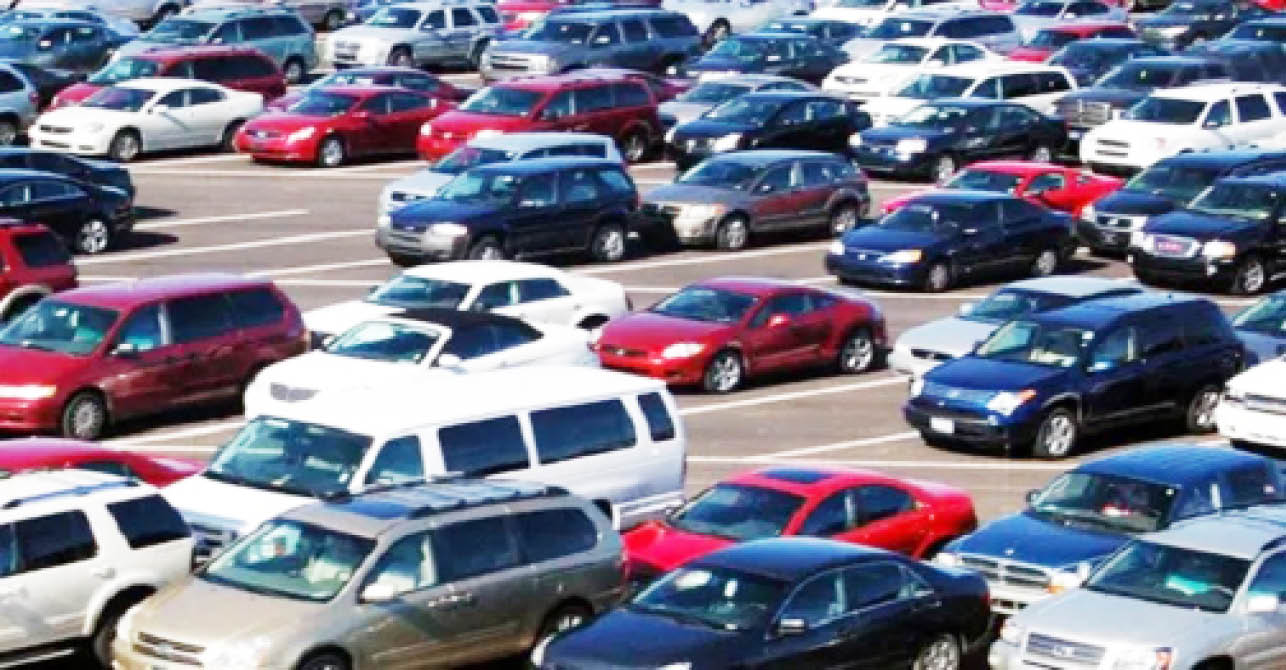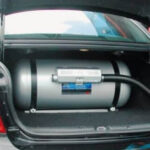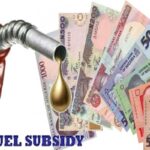Car owners are currently reconfiguring their usage patterns by shifting focus to smaller, more fuel-efficient vehicles to cope with the rising cost of fuel after the removal of subsidy, Daily Trust Saturday reports.
One of the effects of the fuel subsidy removal, which jacked up the price of PMS from N189-N190 per litre to as high as N530 per litre early last month, was the forced readjustment Nigerians had to make in their lifestyle.
For vehicle owners, these are indeed trying times, which have made survival only for the privileged few due to the high cost of fuelling.
Findings by Daily Trust Saturday, however, revealed that car owners have started taking the drastic step of dumping big cars for the smaller, more cost-effective and fuel-efficient vehicles.
- Life term inmate bags NOUN postgraduate degree from prison
- NDLEA intercepts 64,863kg ‘laughing gas’ consignments from China, nabs suspects
SUVs giving way to Sedans?
Auto enthusiasts have different preferences when it comes to car purchase. Some will go for the Sports Utility Vehicles (SUVs) or the Sedan.
Sedan also known as a saloon car is usually a four-door design with a separate trunk for storage mostly known for its stylish looks, smooth handling, and fuel efficiency while SUV on the other hand offers more seating capacity but with lower fuel efficiency.
While most sedans are usually four-cylinder vehicles, the SUV comes with six cylinders, thereby consuming more fuel than the Sedan which has lower horsepower.
For instance, an average four-cylinder Sedan car like Toyota Corolla with 2.0 litre engine takes 50-litre fuel while the six-cylinder engine takes about 80-litre fuel. By implication, the owner of a six-cylinder vehicle needs over N40,000 to fill the fuel tank.
For those using eight-cylinder SUVs or Jeeps like the V8, they are expected to pay more with the current cost of fuel.
Prices of smaller cars skyrocketing
With the high cost of fuel and the decision of car owners to tilt towards fuel efficient vehicles, checks from various car marts, stores and dealers have indicated that prices of smaller cars are now on the increase. It was however learnt that this is mostly applicable to foreign used vehicles.
Findings by our correspondent revealed that many car owners with SUVs in their fleet are considering disposing them for smaller cars.
A Lagos-based car owner, Mr Lucky Osaho, told our correspondent he decided to sell his Lexus RX 350 2010 model at a giveaway price just to raise money to buy a four-cylinder vehicle.
He said, “I sold the car for N3m because I wanted to raise money to buy a smaller vehicle. I am thinking of a Toyota Corolla car which has four cylinders and I can conveniently cope because of this high cost of fuel.
“My brother, buying fuel at N500, you have to be prudent in your movement. It is not going to be easy for any car owner because you have other competing needs. Can you afford to spend all your earnings on fuelling?
“We have a situation where prices of commodities are increasing but incomes are not increasing. Fuel has increased by over 400 per cent but the incomes have not increased. So, you have to prioritise.”
Sedan prices on the increase
Checks by Daily Trust Saturday indicated that prices of 4-cylinder Sedan vehicles are on the increase over high demand.
The popular Toyota Corolla models, mostly used for the ride-hailing services have skyrocketed in prices with 2003-2005 foreign used models going for over N4m. The 2010-2012 Models sold for less than N4m about two years ago now costs N6m at the various car marts surveyed by our correspondent yesterday.
Also, checks on various online marts like Jiji, Cars45, showed 4-cylinder vehicles with higher prices than the V6 vehicles.
For instance, Lexus vehicles with six cylinders are lesser in prices than the Toyota brands in the Nigerian market. A Lexus 250i 2005 is sold for N3m at a car mart in Ikeja, Lagos while at the same mart, Toyota Corolla 2005 is sold for over N4m.
Auto dealers predict drop in import
Amidst the current development in the industry, experts predict a very drastic drop in import of vehicles, whether brand new or fairly used vehicles known as Tokunbo.
CEO, Autocaptain Nigeria Limited, Mr Femi Olawale, in a chat with our correspondent first blamed the increase in the cost of vehicles on the high duty paid by importers which is dollarised.
Following the devaluation of naira, one dollar now exchanges for over N770 which now reflects in prices of imported commodities including automobiles.
“I don’t know why we should be using dollars to do calculation of duties even though we get the cars in dollars,” said Olawale.
He said, “A Venza that we were clearing for N250,000 is now N2.7m as duty alone. By the time you add the terminal charge, shipping charge, you would’ve spent almost N2.8m for 2010 Venza.”
According to him, there has been a drastic decline in sales because of the general cash crunch and the economic downturn in Nigeria.
“One of my uncles who import cars and sell about 50 units in a year was telling me he was able to sell just one car in January. I have quite a number of units with me which I have not been able to sell.
“Car imports will drop because people don’t have a lot of money to buy. Anybody who wants to drop an SUV may be looking for a Sedan to buy at a higher price because there is currently high demand for four-cylinder vehicles,” he said.
The car dealer said smaller, four-cylinder vehicles might become unaffordable again with the current high demand, noting that 90 percent of people are considering changing their six-cylinder vehicles to four.
“But whether high demand or not, the trend I see is that there is no money in circulation. So, people are just trying to catch up with the high cost of fuel. For instance, I try as much as possible to cut down my movement because of the car I drive.
“I won’t go out when people are rushing to go out. I will go out around 11 or 10 when I know there would be lighter traffic and once it is 3pm, I must leave the office and start coming back home.
“People are willing to put their SUV cars up for sale but can they actually get value for it? If they sell anyhow where is the money to add to it to now buy another sedan that would serve them better?
“A lot of people want to sell off their SUV, who is going to buy it? Nobody. In a situation where we have about 90 per cent of people planning to sell off their SUV that consumes more fuel, is it the remaining 10 percent that would want to buy? Except you are selling at a ridiculously low price.
“So, anybody who has a Sedan car to sell, even if it is Nigerian used, the prices would continue to go up definitely. There would be high demand for it.”
He said reduction in vehicle import levy would mitigate the impact of the subsidy removal and encourage more people to buy vehicles.
“What I expect this new government to do is to try and leave the duty as it is for now since they have removed the fuel subsidy. If not, people might be pushed to the wall.”
Automotive Industry analyst, Mr Mamudu Lukman, said many people would drop their SUVs because of the increased fuel cost.
He said, “I believe the reason is obvious. Fuel has become more expensive. Some SUVs have bigger engines and tend to consume more litres per km. Many have actually abandoned their cars altogether for public transport or shared riding.
“This is the right time for the government to flood the roads with buses at affordable riding rates. Transportation can be subsidised because it goes directly to help the people. It’s the practice in advanced societies.”
Auto Industry Player and expert, Mr Jimoh Olawale, believes it is high time Nigerians shifted focus to more sustainable, fuel-efficient automobiles to cope with the subsidy removal.
He said Nigerians should no longer see ownership of big vehicles as prestige because it is not sustainable.
His words, “The removal of fuel subsidies in Nigeria has sparked a significant shift in the priorities of car owners, as they now seek out fuel-efficient vehicles to mitigate the impact of soaring operational costs. This unexpected surge in expenses associated with car ownership has prompted many individuals to scrutinize the fuel efficiency of their vehicles more closely.
“For years, the ownership of “big vehicles” has served as a symbol of status for a majority of the population in Nigeria. However, the recent removal of subsidies and the subsequent ripple effect on the overall cost of owning a car have caused a noteworthy change in consumer preferences. SUVs, once favoured for their size and prestige, are now taking a backseat to more fuel-efficient sedans.
“This shift in preferences signifies a growing realisation among car owners that prioritising fuel efficiency is not only environmentally responsible but also a crucial step in managing the heightened expenses associated with vehicle ownership. As fuel prices continue to rise, the financial burden on car owners has become more pronounced, forcing them to reassess their choices.”
Olawale, who is the marketing manager of Kia Motors Nigeria, added that the fuel subsidy removal “has inadvertently triggered a positive shift towards sustainability and cost-consciousness.”
“As more individuals embrace fuel-efficient vehicles like the Kia cars, it is anticipated that this trend will not only help reduce carbon emissions but also enable car owners to navigate the challenging landscape of increased operational expenses with greater ease.
“As Nigeria adapts to a new era of fuel pricing and changing consumer preferences, the focus on fuel efficiency is expected to remain a dominant factor shaping the automotive industry. Car owners are stepping up to the challenge of making more informed choices, embracing vehicles like the Kia models that align with their economic and environmental goals,” he added.
Another analyst, Mr Femi Owoeye, however, said his findings indicated that many car owners have abandoned vehicles completely while those who have more than one vehicle now prefer to use only sedans instead of SUVs which consume more fuel.
Owoeye, CEO of Motoring World, said “My finding is that people have drastically reduced their journey length and the amount of fuel they used to buy. I know somebody who runs a factory and has two delivery vehicles and he has been using only one.
“Because of the Nigerian mentality, those using SUVs are still using it but the only difference is that they travel less distance and people are less flamboyant about it. Where we would be heading to definitely is that people would begin to realise, just as it is in Europe, to use Sedans, even smaller hatchback vehicles more than the SUVs. We will go into that trend. But at the moment, Nigerians are not that enlightened about automobiles, it is about prestige. They are now reducing the journey distance and the amount of fuel they buy which is why there is no queue in filling stations and they sell far less.”

 Join Daily Trust WhatsApp Community For Quick Access To News and Happenings Around You.
Join Daily Trust WhatsApp Community For Quick Access To News and Happenings Around You.



